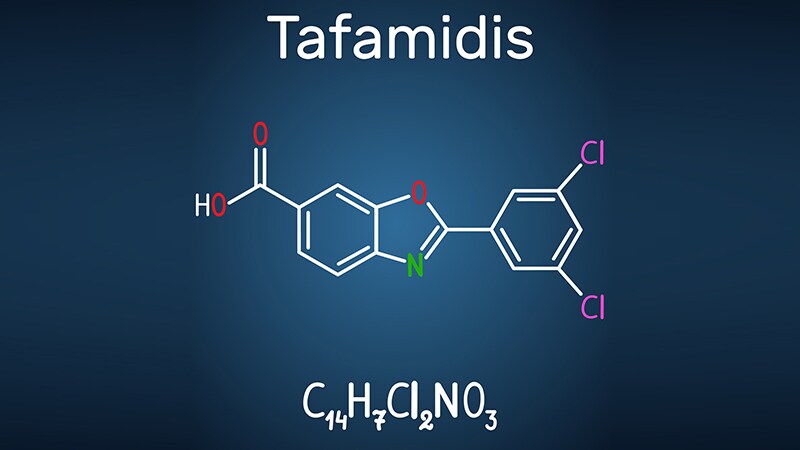France — Vyndaqel® 61mg (tafamidis) is now available and reimbursed at 65% in France as the first-line treatment for wild-type or hereditary transthyretin amyloidosis in adult patients with cardiomyopathy (ATTR-CM).
Tafamidis is the first and only treatment authorized in Europe to have demonstrated a reduction in mortality and the frequency of hospitalizations in ATTR-CM of cardiovascular origin in adults with ATTR-CM. The target population of Vyndaqel® 61mg in this indication is estimated at 5,000 patients in France.
Since 2019, tafamidis has been the subject of a Temporary Recommendation for Use (RTU) and could be prescribed by hospital cardiologists referring to the management of cardiac amyloidosis.
The 61mg tafamidis capsule is equivalent to an 80mg dose of tafamidis meglumine and has been developed for patient comfort to allow daily administration of a single capsule. Vyndaqel® 61mg and Vyndaqel® 20mg are not interchangeable in milligrams.
Important ASMR according to HAS
The Transparency Commission of the Haute Autorité de Santé published in October 2020 an opinion favorable to reimbursement considering that the drug brought about a significant improvement in actual benefit (ASMR II).
Vyndaqel® 61mg softgels is now reimbursed at 65% and can be made available as first-line treatment for the treatment of eligible ATTR-CM patients.
In practice, the prescription and delivery conditions are as follows:
-
Vyndaqel® 61mg soft capsules (tafamidis) is a List I drug, subject to initial hospital prescription (PIH) reserved for hospital cardiologists, in order to ensure the diagnosis of the disease in accordance with the recommended examinations.
-
The renewal of the treatment can be carried out by any hospital or city cardiologist, at a rate of at least once a year, the treatment indeed requiring regular cardiological monitoring.
-
In the meantime, the renewal is unrestricted and can therefore be carried out by any doctor under the conditions of common law.
Etude pivot ATTR-ACT
Vyndaqel (tafamidis) 61mg, obtained European Marketing Authorization on February 17, 2020 on the basis of the pivotal phase III ATTR-ACT study.
The phase 3 ATTR-ACT study is the first international clinical trial involving 441 patients, double-blind, randomized, placebo-controlled, completed, to have evaluated pharmacological therapy for the treatment of ATTR-CM. In the primary analysis of the study, Vyndaqel® (tafamidis meglumine – 20mg and 80mg) demonstrated a significant reduction in the endpoint combining all-cause mortality and the frequency of cardiovascular hospitalizations, compared with placebo on a period of 30 months, in patients with wild-type or hereditary ATTR-CM (p = 0.0006).
In addition, the individual components of the primary analysis demonstrated a relative reduction in the risk of all-cause mortality and the frequency of cardiovascular hospitalizations of 30% (p = 0.026) and 32% (p <0, respectively). 0001), with Vyndaqel® versus placebo.
The frequency of side effects in patients treated with Vyndaqel® was generally similar and comparable to that of placebo.
The side effects that appeared during treatment were mild to moderate in severity, discontinuous, and less frequent in the tafamidis group than in the placebo group.
Transthyretin amyloidosis with cardiomyopathy (or ATTR-CM) is a rare, progressive and fatal disease. It occurs when transthyretin, a transport protein that circulates naturally in the blood, becomes unstable, misfolded, and aggregates into abnormal deposits called amyloid deposits. These amyloid deposits build up in the heart and cause stiffness in the heart muscle which can then cause hypertrophic and / or restrictive cardiomyopathy and progressive heart failure. There are two forms of ATTR-CM: an inherited form caused by a genetic mutation, and a non-inherited form called the wild form which is due to age. Without treatment, the observed median survival is 3 to 5 years after diagnosis in these patients. Vyndaqel® 61mg (tafamidis) is a transthyretin stabilizer that selectively binds to transthyretin, stabilizing the tetramer of the transthyretin transport protein and slowing the formation of amyloid deposits.
–
–


